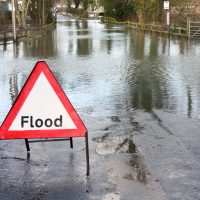
The BoE has been running an exercise with some of the UK’s largest banks and insurers to see how climate-related risks would impact them, with the idea of improving the climate risk management in place across these industries.
The tests involved running three “stylised scenarios” over how the UK approaches its ‘net zero’ aim, to see how this could impact the financial position of the firms.
These were:
- Early action (EA), where climate policy is ‘ambitious’ from the beginning with increasing use of things like carbon taxes.
- Late action (LA), where the transition to net zero is delayed by a decade, followed by more sudden measures.
- No action (NA), which as the name suggests is where no additional action is taken.
The study found that banks and insurers are likely to be able to absorb the costs of transition that fall on them, though the overall costs will be lowest with “early and well-managed action”.
The scale of mortgage losses
The BoE suggested that mortgage losses would be “relatively muted” in the EA scenario, but increase substantially in the LA scenario “as a result of rising unemployment together with falling house prices and the general macroeconomic downturn”.
In total, projected climate-related credit losses were 30 per cent higher in the LA scenario than the EA scenario.
The report said: “Key drivers were the large increase in carbon prices contained in this scenario, which leads to large corporate loan losses across energy users and energy producers, and the economy-wide recession, including a rise in unemployment and fall in house prices caused by the sharp adjustment process, leading to significant mortgage impairments.”
If no actions were taken, mortgage losses may be even more significant, “driven in large part by an intensification of flood risks” according to the report.
Improving energy efficiency of our homes
In both of the transition scenarios, it was assumed that households would bear the cost of improving the energy efficiency of their homes, whether they borrow further from lenders in order to do so or not.
The report states: “This extra household liability affects the ability of some borrowers to afford mortgage repayments. Staff estimate that the aggregate costs of such energy efficiency improvements for participating firms’ UK mortgage customers may be around £75bn.”
It also found that impairment rates were likely to be particularly high for properties with the lowest energy efficiency ratings, as banks “assume these properties become unmarketable”.
Sam Woods, deputy governor for prudential regulation and chief executive officer of the Prudential Regulation Authority, said that events such as the war in Ukraine and rises in energy prices demonstrated the challenges banks and insurers face from changes in their “operating environment”.
He continued: “We find that they are likely to be able to absorb the climate costs which fall on them without material risks to solvency, but will face significant headwinds and therefore need to continue to invest in their ability to support the economy’s transition to net zero.”















